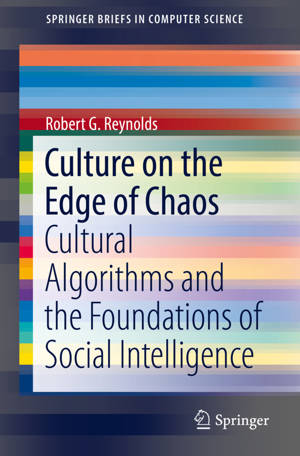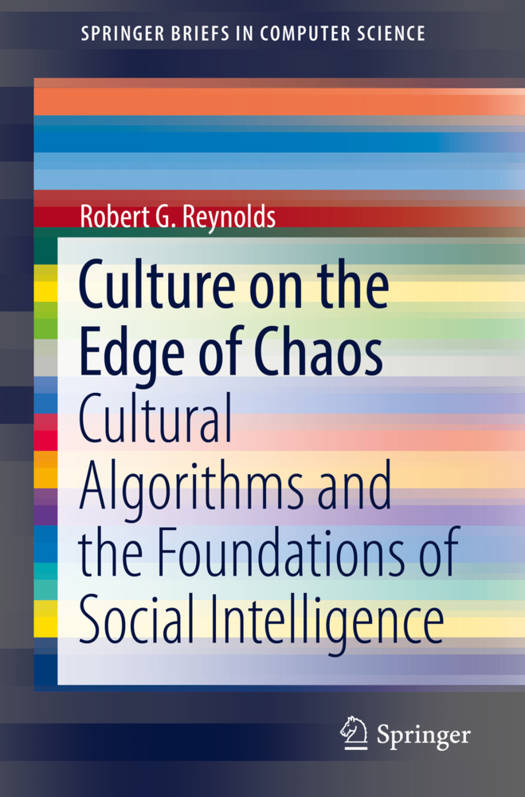
Je cadeautjes zeker op tijd in huis hebben voor de feestdagen? Kom langs in onze winkels en vind het perfecte geschenk!
- Afhalen na 1 uur in een winkel met voorraad
- Gratis thuislevering in België vanaf € 30
- Ruim aanbod met 7 miljoen producten
Je cadeautjes zeker op tijd in huis hebben voor de feestdagen? Kom langs in onze winkels en vind het perfecte geschenk!
- Afhalen na 1 uur in een winkel met voorraad
- Gratis thuislevering in België vanaf € 30
- Ruim aanbod met 7 miljoen producten
Zoeken
Culture on the Edge of Chaos
Cultural Algorithms and the Foundations of Social Intelligence
Robert G Reynolds
€ 62,95
+ 125 punten
Omschrijving
The author first introduces the basic framework for cultural algorithms and he then explains the social structure of a cultural system as a mechanism for the distribution of problem-solving information throughout a population. Three different models for social organizations are presented: the homogeneous (nuclear family), heterogeneous (expanded family), and subculture (descent groups) social models. The chapters that follow compare the learning capabilities of these social organizations relative to problems of varying complexity. The book concludes with a discussion of how the results can impact our understanding of social evolution.
Specificaties
Betrokkenen
- Auteur(s):
- Uitgeverij:
Inhoud
- Aantal bladzijden:
- 108
- Taal:
- Engels
- Reeks:
Eigenschappen
- Productcode (EAN):
- 9783319741697
- Verschijningsdatum:
- 14/05/2018
- Uitvoering:
- Paperback
- Formaat:
- Trade paperback (VS)
- Afmetingen:
- 156 mm x 234 mm
- Gewicht:
- 176 g

Alleen bij Standaard Boekhandel
+ 125 punten op je klantenkaart van Standaard Boekhandel
Beoordelingen
We publiceren alleen reviews die voldoen aan de voorwaarden voor reviews. Bekijk onze voorwaarden voor reviews.









